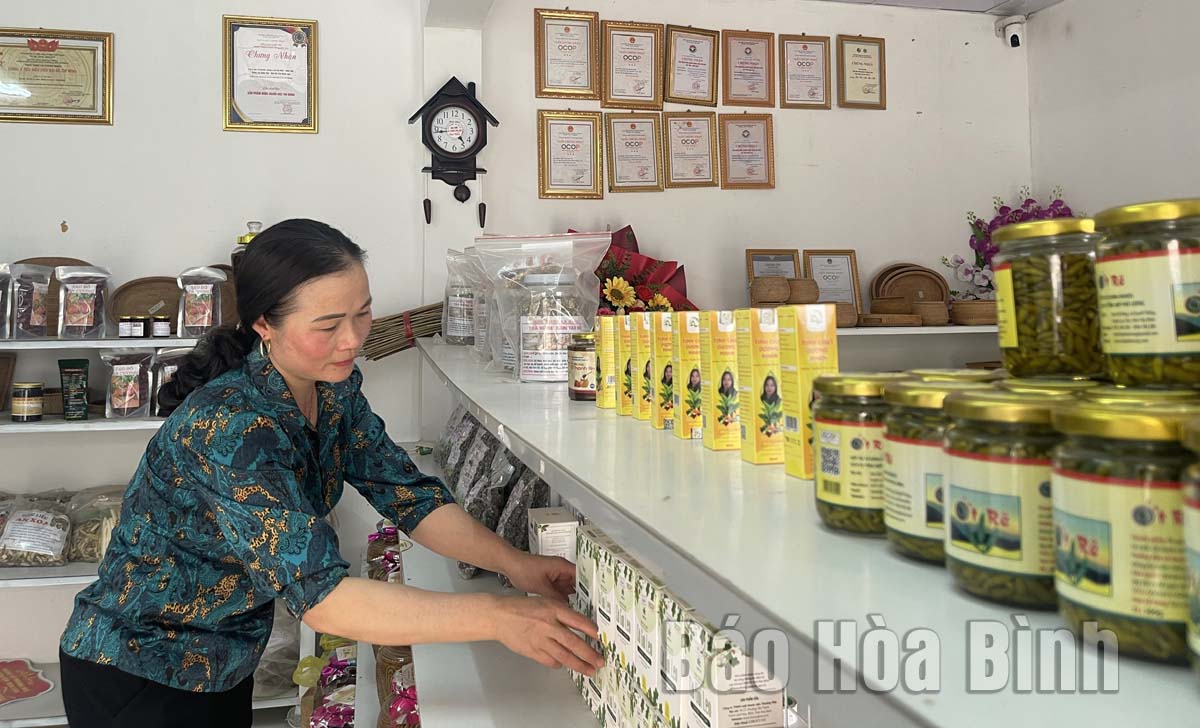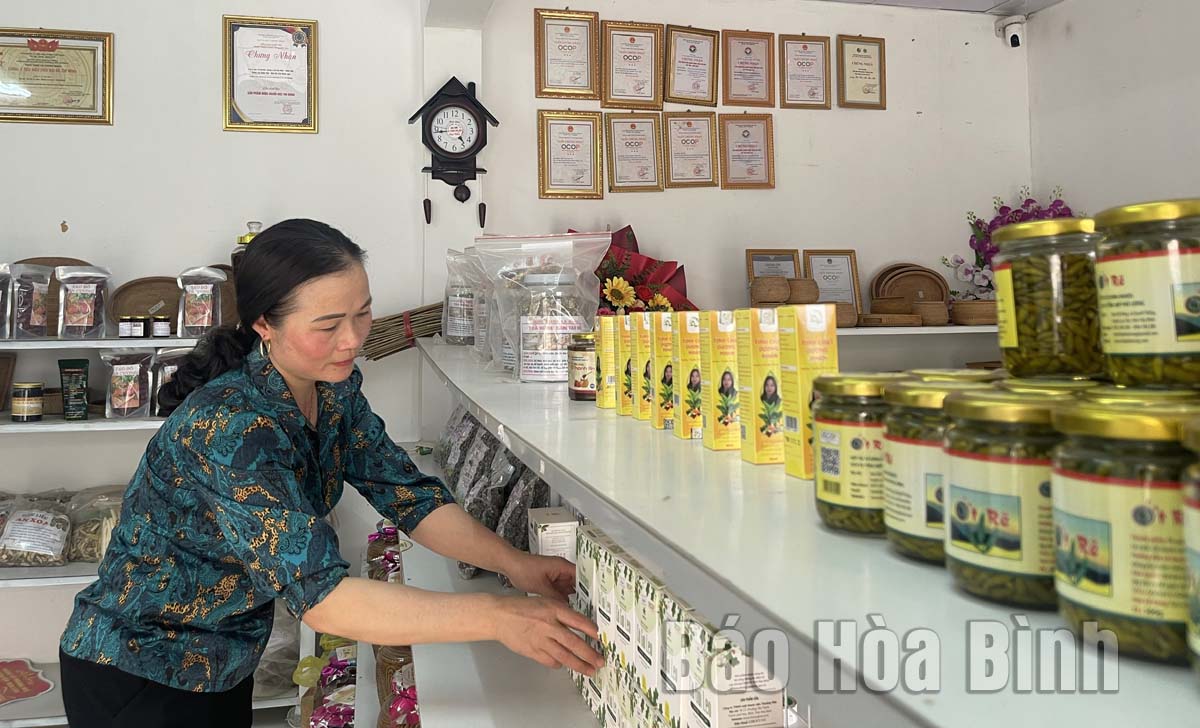
(HBO) – Lac Son district targets to have five products recognised as One Commune –One Product (OCOP) this year besides two products will be re-evaluated. Currently, the district's OCOP products with three stars are Phu Luong forest chili, Luc Nghiep Thanh brocade, Huong Nhuong oranges, vacuum-packed chicken, and "doi” seeds - a local seed to cook with chicken or fish.
Lac Son District People's Committee
directs the construction of booths to display, introduce and sell local OCOP
products.
Among the products proposed to develop into the
district’s OCOP this year is Muong sticky rice wine made by an establishment in
Vu Ban township.
Nguyen Anh Tuan, owner of the establishment,
said to make the product, his family studied the process of making wine with
yeast from plants of the ancient Muong people. Therefore, wine is completely
made from yeast and specialty rice grown in Mien Doi commune. Besides, foreign
wine-making technology is also applied to produce high-quality local wine.
Tuan said that his family received instructions
from departments, agencies, and the People's Committee of Lac Son district to
perfect the wine production process. "We signed contracts with sticky rice
growing households in Mien Doi commune to build a material area for wine
production."
In addition to Muong wine, this year Lac Son
district will continue to include other products in the OCOP programme such as
green-skinned pomelo (Yen Phu commune); sticky rice (Mien Doi commune); Muong
Vang honey and Muong Vang "can” wine (Tan Lap commune).
Phan Thi Hanh, Deputy Head of the district’s
Agriculture and Rural Development Department, said that the district focuses on
supporting standardisation and product development towards producing quality
goods; consulting, guiding those who participate in the OCOP programme in
completing dossiers, registering intellectual property, certifying products
according to safe production standards.
Apart from focusing on developing new products,
the district also pays attention to products that have been evaluated and
ranked to make it continue to meet requirements for export.
The district focuses on coordinating and opening
training courses for managers and administrators of the OCOP programme in
communes, towns, and participants to improve their knowledge and skills in
developing business plans, packaging, labelling, and branding.
The district has built booths to display and
sell OCOP products in the district and other localities. Its specialty products
are also introduced on e-commerce trading floors./.
According to data from the Hoa Binh Provincial Party Committee, the industrial production index for the first six months of 2025 is estimated to have increased by 20% compared to the same period last year. This marks the highest year-on-year growth rate for this period since 2020.
In the first six months of 2025, Hoa Binh province’s export turnover was estimated at 1.145 billion USD, marking an 18.11% increase compared to the same period in 2024. Import turnover was estimated at $ 804 million, a 17.15% increase, which helped the province maintain a positive trade balance.
The lives of the ethnic minority farmers in Tan Lac district have gradually improved thanks to the new directions in agricultural production. This is a testament to the collective strength fostered through the professional associations and groups implemented by various levels of the district’s Farmers’ Union.
With the motto the "product quality comes first,” after nearly one year of establishment and operation, Muong village’s Clean Food Agricultural and Commercial Cooperative, located in Cau Hamlet, Hung Son Commune (Kim Boi district), has launched reputable, high-quality agricultural products to the market that are well-received by consumers. The products such as Muong village’s pork sausage, salt-cured chicken, and salt-cured pork hocks have gradually carved out a place in the market and they are on the path to obtaining the OCOP certification.
In the past, the phrase "bumper harvest, rock-bottom prices" was a familiar refrain for Vietnamese farmers engaged in fragmented, small-scale agriculture. But today, a new spirit is emerging across rural areas of Hoa Binh province - one of collaboration, organisation, and collective economic models that provide a stable foundation for production.
Maintaining growing area codes and packing facility codes in accordance with regulations is a mandatory requirement for agricultural products to be eligible for export. Recently, the Department of Agriculture and Environment of Hoa Binh province has intensified technical supervision of designated farming areas and packing facilities to safeguard the "green passport" that enables its products to access international markets.



